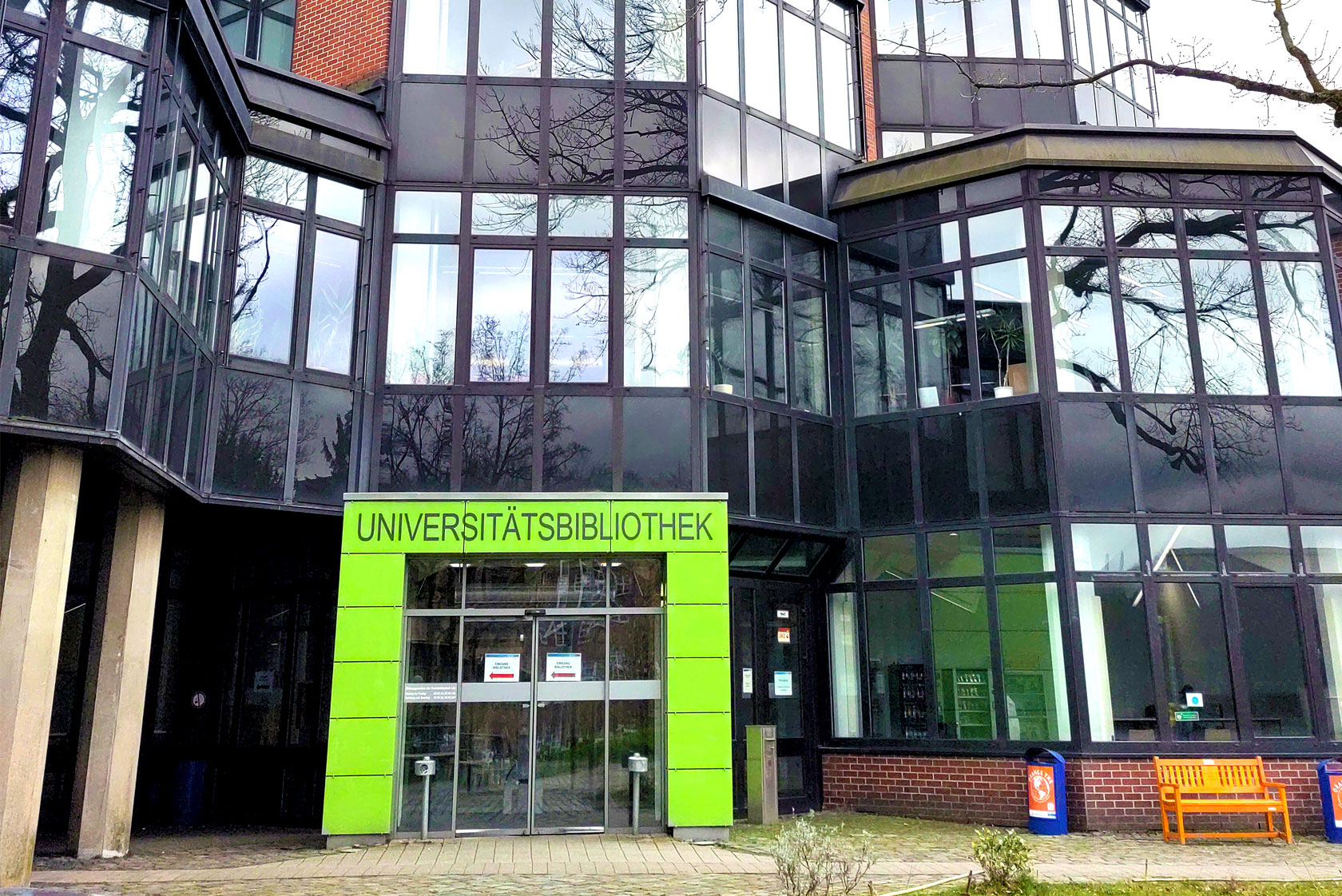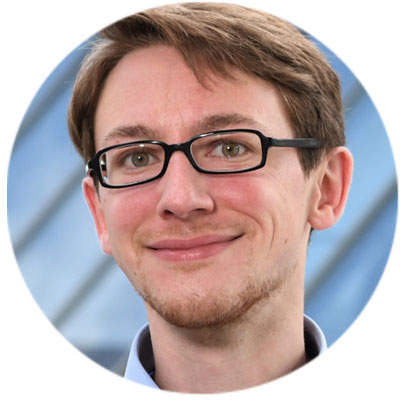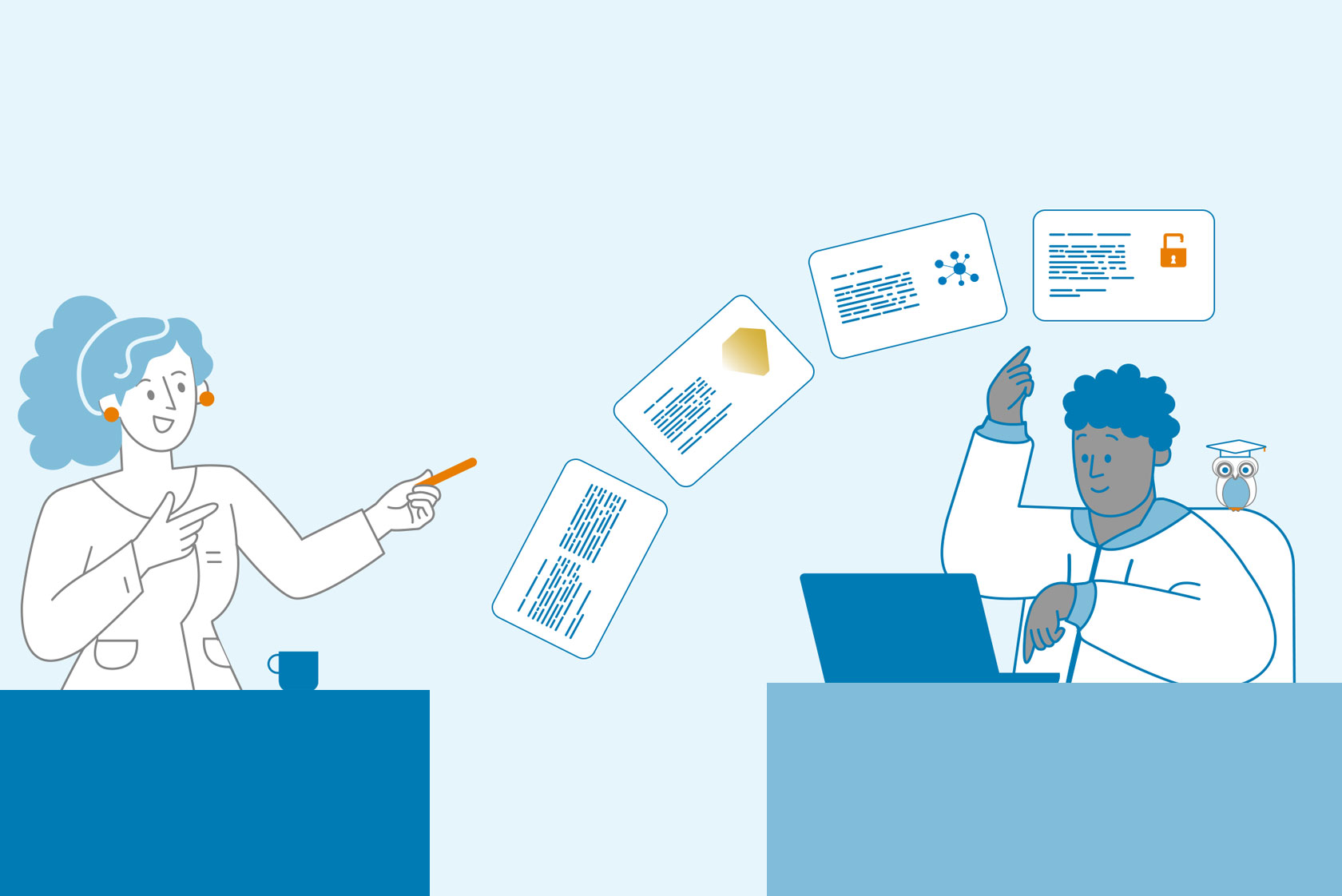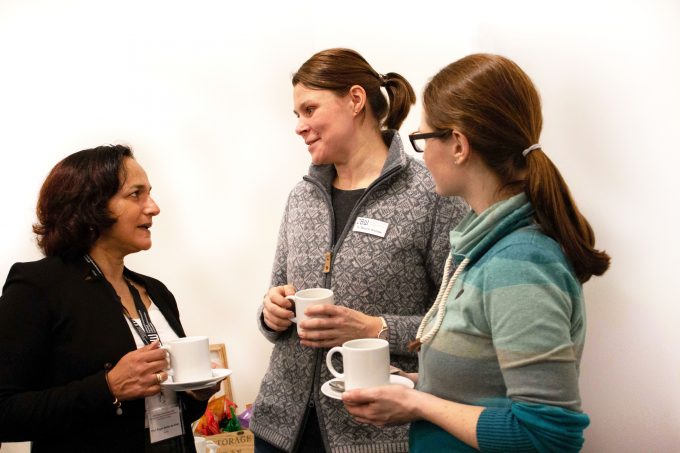
Open Access Barcamp 2025: From Best Practices and Visions to Triage in Publication Funds
Some participants would even have liked to add on an extra day: The oa.barcamp 2025 once again gave Open Access professionals from all over the German-speaking area an opportunity for focussed collaboration. The key topics included Diamond Open Access and the assurance of the quality and visibility of Open Access books.
by Dr Danny Flemming (open-access.network project)

The Open Access Barcamp 2025, which took place on 26 and 27 March at the University of Duisburg-Essen, was organised within the framework of the open-access.network project in collaboration with openaccess.nrw, an initiative of the federal state of North Rhine-Westphalia. It offered a platform for intensive exchange on current Open Access topics.
As is usual in the barcamp format, the participants were called upon to actively shape the programme. In several parallel sessions, concrete problems were discussed, best practices exchanged, and visions for Open Science developed. The topics ranged from infrastructures for Diamond Open Access, through publication fund management, to the challenge of sustainably consolidating project-based services, information portals, and expertise in the Open Access context.
Diamond Open Access: Potential and Challenges
One central session was devoted to the Diamond Open Access model, where neither authors nor readers are charged fees. There was intensive discussion on how researchers can be won over to this model. It was particularly emphasised that political arguments or technical infrastructures are not enough when traditional reputation logics (e.g. the Journal Impact Factor) discourage researchers from publishing as openly as possible. The provision of peer-to-peer advice by successfully publishing researchers and the development of support structures (e.g. publication funds and personnel resources) were cited as possible solutions to this problem. The development of an evidence-based argumentation based on citation advantages and the advantages of using free licences was also suggested.
Triage in Publication Funds?
Challenges in administering Open Access publication funds were discussed in several sessions. Participants spoke of rising costs, tight budgets, and high administrative burden at their institutions. Strategies such as the staggered allocation of funds, the integration of third-party funds, and the introduction of transparent funding criteria (e.g. for monographs or edited volumes) were presented. The question of triage in cases where publication funds are overburdened was controversially discussed. If there are not enough funds to support all eligible publications, it will inevitably be necessary to prioritise. One suggestion was that this selection be based on science policy criteria such as the FAIR data principles.
oa.finder and Open Access Books
A further topic was the assurance of the quality and visibility of Open Access books. As central data sources such as the German National Library do not provide a complete overview, Katja Dammann (Bielefeld University Library) described the complex structure of the oa.finder database. Regarding Open Access books, the difficulty of systematically identifying publishing practices in the book sector was discussed. Transparency problems with publishing models and the absence of reliable, standardised interfaces were cited as reasons for this.
Open Access at Smaller Institutions
In a particularly practice-oriented session from the project P2P.OA.HAW, Emilia Mikautsch (University of Konstanz) and the session participants used personas to jointly identify the particular challenges in relation to Open Access that smaller institutions such as universities of applied sciences (HAW) face. It became clear that, in addition to limited resources, unclear responsibilities and a lack of institutional commitment are the main obstacles to the implementation of Open Access. Peer-to-peer consulting, targeted funding measures, and stronger networking among the institutions were cited as key solutions.
Institutional Repositories und Publishing Services
The development and consolidation of self-archiving services was another recurring topic. Challenges include legal uncertainty on site, a lack of workflows, the additional workload for library personnel, and a low level of awareness of this topic among researchers. It became clear that early advice, technical support, and institutional backing are essential. As a practical tool for developing institutional publishing services, Doreen Rocholl (University of Duisburg-Essen, openaccess.nrw, an initiative of the state of North Rhine-Westphalia) presented a draft agreement between an author and a publisher to publish a contribution in a journal hosted using Open Journal Systems (OJS), and allowed the session participants to adopt the perspective of the author, on the one hand, and the (institutional) publisher, on the other, when taking a critical look at the agreement.
Consolidation of open-access.network
At the end of the barcamp, the approaching end of the second funding phase of the open-access network project was addressed. Martina Benz (University of Konstanz, open-access.network) outlined plans for the future sponsorship and funding of the project under the umbrella of an association named open-access.network e. V, which is currently being founded. Membership will be open to institutions, initiatives, and individuals, who will jointly carry on the information and advisory services into the future. During the session, the importance of the information and networking portal open-access.network as a central orientation point for the growing community of Open Access professionals – especially for new Open Access Officers and smaller institutions that are still in the process of becoming fully immersed in the topic – was emphasised.
Conclusion
The Open Access Barcamp 2025 once again impressively demonstrated the diversity of the challenges in the area of Open Science and showed how important collegial exchange, networking, and the strategic development of institutional structures and expertise are if these challenges are to be adequately met. In particular, the sessions on Diamond Open Access and the structural conditions at smaller institutions made it clear that Open Access needs more than just appeals and persuasion – it also needs political support, resources, and practical tools.
This might also interest you:
- The Open Access Barcamp 2024: Community, Exchange and Reflection
- Financing Diamond Open Access for Economics Sciences: How OLEcon Works
- Barcamp Open Science 2024: Happy Birthday!
- Open Access Days 2024: DEAL, Diamond and Beyond
- Organising and Financing Diamond Open Access: How can this be achieved in collaboration with others?
- Open Access Conference: Reputation Without a Paywall?
Dr Danny Flemming (contact via mail), Graduate Psychologist, received his doctorate from Eberhard Karls University in Tübingen, where he conducted research at the Leibniz Institute for Knowledge Media and is now part of the Open Science team at the Communication, Information, Media Centre (KIM) at the University of Konstanz. He works in the open-access.network project, which promotes competence development and networking in the Open Access field.
Portrait, photographer: Christian Hartz©
Photos: University Konstanz (cc-by)
View Comments

Teaching Open Science: Slide set Supports Lecturers
How can knowledge about Open Science be disseminated more widely and how can...



